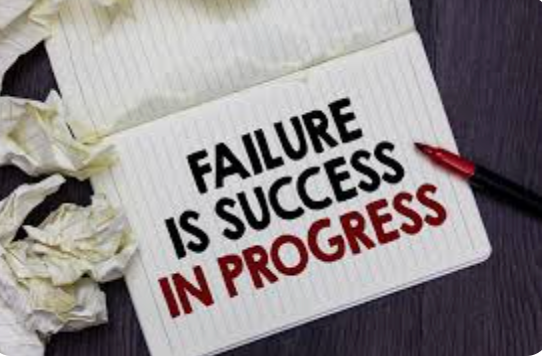
As much as I'd like to think that my brain works as I want it to at all times, in fact, I spend a lot of my energy in reframing. My first thoughts, before I massage them, sometimes lean toward the negative. Then, I remind myself that I control the lens through which I view the world. Instead of seeing anything as inherently bad, I can decide to see it as neutral or positive.
So, of course, when I heard someone (probably a Peloton instructor, if I'm giving the right credit) say that when we fail, we make our First Attempt In Learning, I took note. When I do something poorly, I can be sad about my inability to do it well, or I can remind myself that I:
- figured out one way not to do it;
- have provided myself with an opportunity to try a new approach;
- created a teachable moment for myself and maybe for my students; and
- can probably find a way to spin the lesson into a Why Wednesday essay.
I teach at a school where the students do well. I'm not talking about grade inflation, though that's real and widespread. I'm talking about being lucky enough to work in a selective institution that accepts only students with a track record of doing their work and knowing how to study. The students here care about their futures and know that success here can help open doors for them.
Sounds perfect for a teacher, right? Well, mostly it is, but the students' drive to succeed causes many of them to feel pressure that anything less than excellence is failure, and they see failure as immutable and unacceptable. They see failure as who they are rather than part of a process. Many of them believe that if they don't do well every time they attempt, horrible things will happen.
Sometimes, this drive overcomes their sense of right, so they try to find shortcuts that involve sacrificing personal integrity for high grades. I find it so sad when students cheat because what they've internalized is that their best isn't good enough. Those who submit work that isn't their own have come to value the scores in their academic record more than they value themselves. They're investing in grades rather than in education. They fundamentally believe they can't succeed without taking a shortcut/cheating.
Instead, I wish there were a way to convince them that when they get bad grades, they're finding opportunities to learn. If they do something the wrong way, they can embrace the feedback that will guide them on a better path. If we reframe our blunders as necessary steps in finding the right direction, we can see them not as personal weakness but as transitional progress. Failure then isn't who we are but a step toward who we want to become.
Have you had a failure that's helped you get to a better place? Please share any thoughts in the comments.
I keep a giant box of erasers on my desk.
Love it! Planning for missteps makes them easier to see as part of the process.
In preparing for a poetry reading I’m supposedly giving in a month or so, I’ve been staring at a lot of failure. Many pages have now been torn up into scrap for grocery or to do lists. Meanwhile, poems that once were in the category of pretty good now languish in the category of nearly dead! So it’s good to be reminded that the seeming failures are just uncomfortable nudges to take a break if necessary and then get back to it, knowing that somewhere in all that stash of rough drafts, something pretty jazzy eventually seems to come. Forgetting that robs myself of the journey and this crazy, creative process.
Dear Sarah, I love this real-world, current example of how important this reframe is. Thanks for sharing it!